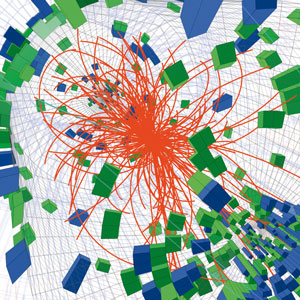 National Scientific Committee 1
National Scientific Committee 1
Particle physics
CSN1 studies fundamental interactions of matter in experiments using particle accelerators. At present, the best theory scientists have to describe our knowledge of subnuclear physics is the so-called Standard Model. The use of accelerators working at larger and larger energies allows to create new particles which don't exist in nature in ordinary conditions and which are characterized by increasingly higher masses.
The aim of current research is to gain a deeper understanding of certain aspects, such as what generates the mass of these particles (starting from the Higgs boson discovered in 2012) and which possible scenarios beyond the Standard Model can explain the unsolved problems still left to be fully understood.
In 2018 CSN1 has submitted a document for the European Strategy for Particle Physics proposing studies and developments concerning experiments for future colliders.
Eventi & Workshop
- 4-6/11/2024 - Venezia
second joint FCC France&Italy workshop - 9-11/10/2024 - Paris (Francia)
2024 ECFA Workshop on e+e- Higgs/EWK/top factories - 22-27/9/2024 - Saint Malo (Francia)
17th International Workshop on Top Quark Physics (TOP2024) - 18-21/6/2024 - Trani (BA)
2024 edition of QCD@Work - International workshop on QCD - 16-22/6/2024 - Milano
International Conference on Neutrino Physics and Astrophysics, Neutrino 2024 - 9-14/6/2024 - Alghero (SS)
XXI Seminar on Software for Nuclear, Subnuclear and Applied Physics and official Geant4 School - 3-7/6/2024 - CERN
Advanced Training School on Operation of Accelerators - 13-17/5/2024 - Frascati
XXI LNF Spring School “Bruno Touschek” in Nuclear, Subnuclear and Astroparticle Physics - 12-17/5/2024 - Paestum (Salerno)
6th INFN School of Statistics


